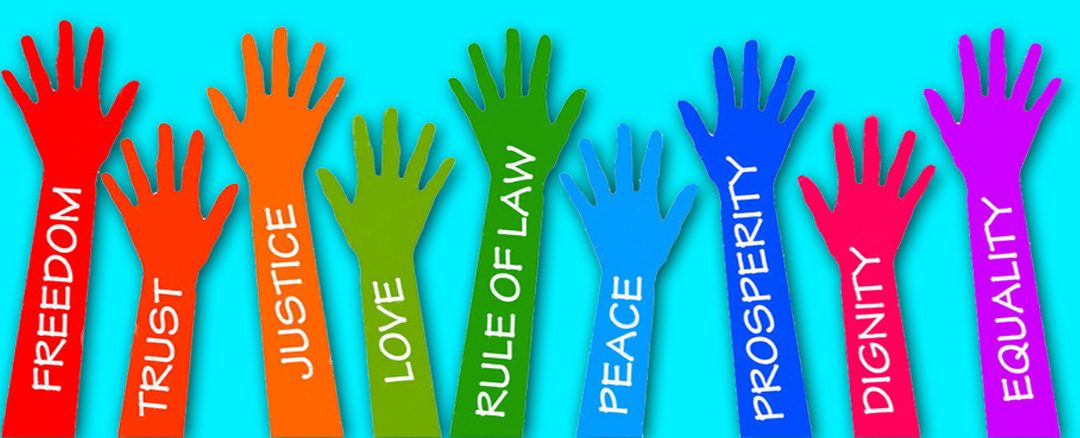BY GWEN LISTER President Hage Geingob clearly takes pride in the country’s commitment to a free press, and our place near the top of the rankings on the continent. Generally, he is far more progressive than most African heads of state when it comes to the media, and he’s on record as saying he’d like Namibia to become number one in the world.
This is a commendable approach, and one which gets us international acclaim. But juxtaposed with this, it’s perplexing that he seems to have a problem with the composition and role of civil society.
At times, he’s vocal in his criticism of media, which is not a problem if that is where it ends. But if he wants us to top the global charts, he’ll need to temper his apparent dislike for civil society, of which the media is arguably a part.
The positive move by his government to accede to the African Union’s African Peer Review Mechanism (APRM), a voluntary instrument through which countries agree to promote good governance by undertaking a self-monitoring assessment culminating in a plan of action to tackle identified challenges, is somewhat spoiled by his repeated references to civil society partners in the process as “failed politicians who want to come through the back door”.
He said this again recently at a meeting with a visiting delegation from the APRM secretariat; and he’s done so consistently over the past few years, and this warrants some analysis.
Namibia’s civil society has never been that strong. But although smaller and underfunded, compared to our South African neighbours, for example, it does sterling work in its watchdog role. But more than that, civil society promotes integrity by actively participating in and working towards a Namibia which lives up to its widely praised Constitution and Bill of Rights (and often this work is done on a voluntary basis).
Contrary to President Geingob’s antagonistic view, civil society organisations are more often partners than they are opponents of the government.
That having been said, the ruling party which the President leads must take responsibility for what could be called attempts to neutralise civil society, by among others co-opting vocal unionists, for example, into government in an attempt to silence their voices. And this strategy proved effective shortly after 1990 when unions were undermined by the loss of their political independence through their alliance with Swapo.
Against this background, it would be a huge mistake for the President to characterise civil society as ‘failed politicians’. I know of scores of selfless individuals who commit themselves to making Namibia a better place to be, and most have no interest in using their place in this sector to score cheap political points against the ruling party. But they will from time to time be critical of the way the government is handling certain issues, as should be normal in a functioning democracy.
Such criticisms and attempts to call the government to account do not make them ‘failed politicians’, but rather activists who are promoting and building our democracy.
In fact, in government and the state-owned sector, like it or not, ‘failed politicians’ proliferate, and are seldom if ever taken to task, despite the President’s best promises to be relentless and unforgiving in this regard. So, to point a finger at civil society is hypocritical in the extreme.
If space allowed, I could attempt to list all the many achievements of civil society in bringing about change and trying to keep the country on course. From speaking up for the poor and marginalised to effecting positive legislative change, working with politicians to improve their understanding of cybersecurity and other highly specialised areas, assisting with the drafting of good access to information (ATI) legislation, as well as exposing faults in current policies and laws and recommending remedies, they have combined to do much good that goes unacknowledged.
Take away civil society and a free media, and politicians and the bureaucracy would have run riot in this country.
Civil society is expected to work alongside the government in the APRM monitoring exercise, which will culminate in a plan of action to mitigate the identified challenges.
Among others, the process will necessitate a long hard look at the bloated and largely ineffective bureaucracy, corruption and waste, and how we can do things better. If we’re to be serious about this exercise, then it is important that we keep open minds, and not try to discredit the very partners who form an essential part of this monitoring mechanism.
If we are not fully engaged in and committed to what will be a time-consuming, yet worthwhile initiative, then it is best we abandon the pretence. Elections are around the corner, and the government’s will to dedicate itself to the APRM governance review will be tested, as they will simultaneously want to please the electorate and fend off criticisms that may arise from the APRM process.
Speaking as a member of the civil society sector, I can honestly say that, politics aside, it is fully committed to both the country and its progress, and serving as an example on the African continent. It would be good if President Geingob could give credit where it is due, rather than providing his administration with excuses for not cooperating in advance by questioning the integrity of their partners in civil society.
* Follow me on Twitter: @GwenLister1

